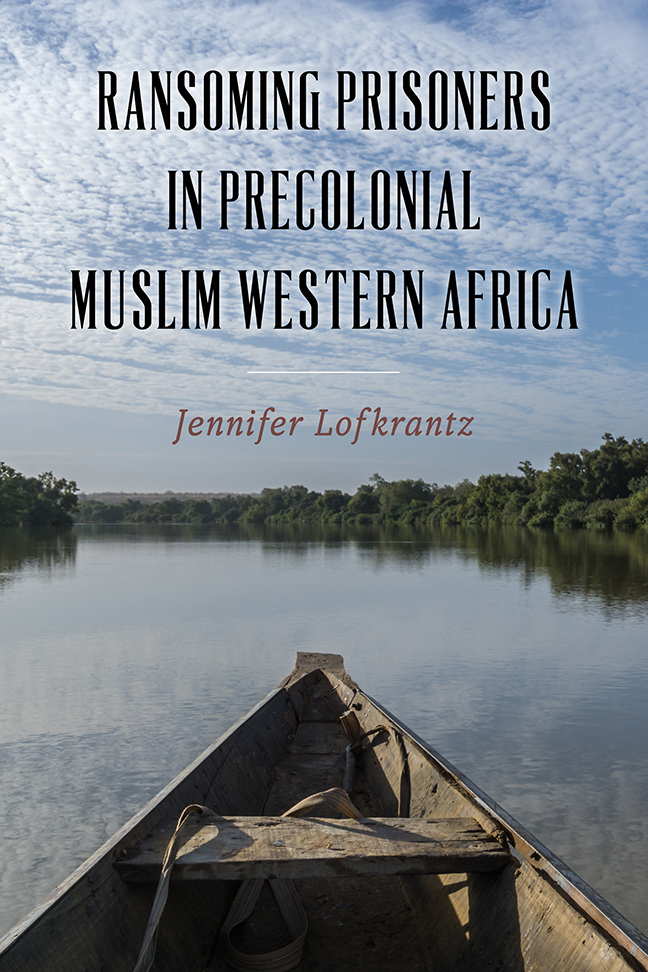Book contents
- Frontmatter
- Contents
- Tables
- Acknowledgments
- Introduction
- One Islamic Discourse on Slavery and Ransoming before 1800
- Two The Policy and Practice of Ransoming in the Maghrib
- Three Jihad, the Sokoto Caliphate, and Ransoming
- Four The Jihad of ‘Umar Taal and Its Ransoming Nonpolicies
- Five The Negotiation and Practice of Ransoming Prisoners
- Conclusion
- Bibliography
- Index
Three - Jihad, the Sokoto Caliphate, and Ransoming
Published online by Cambridge University Press: 10 January 2024
- Frontmatter
- Contents
- Tables
- Acknowledgments
- Introduction
- One Islamic Discourse on Slavery and Ransoming before 1800
- Two The Policy and Practice of Ransoming in the Maghrib
- Three Jihad, the Sokoto Caliphate, and Ransoming
- Four The Jihad of ‘Umar Taal and Its Ransoming Nonpolicies
- Five The Negotiation and Practice of Ransoming Prisoners
- Conclusion
- Bibliography
- Index
Summary
In a song he composed on the late eighteenth-century social strife in Hausaland, ‘Uthmān b. Fodiye blamed the divisions in society in large part on the capturing and enslavement of free individuals. In West Africa, unlike in the Maghrib, ransoming was primarily viewed by government officials as a means to free captive freeborn Muslims and not as a way to benefit financially from captives that they held. Like many West African scholars, ‘Uthmān was interested in addressing the problems of his time through interpretation and application of Islamic scholarship. While he would eventually lead a jihad, along with his brother ‘Abdullāhi b. Fodiye and his son Muḥammad Bello that would overthrow the various kingdoms of the central Sudan and establish the Sokoto Caliphate, ‘Uthmān first tried to use moral suasion and to advise political rulers to effect change and to protect the rights of freeborn Muslims.
The Triumvirate, as ‘Uthmān, ‘Abdullāhi, and Bello became known, came from a long line of Fulbe scholars and teachers. As descendants of an eighteenth- century scholarly Fulbe family in the central Sudan, the Triumvirate’s education included tawḥīd (theology), fiqh (Islamic legal theory/jurisprudence), tafsīr (Qu’rānic commentary), hadith, and Arabic. It included a mixture of the basic texts of the Mālikī madh’hab, the Sufi Qādiriyya ṭarīqa and of major West African scholars including al-Maghīlī and Bābā. ‘Uthmān and ‘Abdullāhi's principal teachers were their uncles ‘Uthmān Binduri and Muḥammad Sambo and the scholars Muḥammad b. Rāji and Jibrīl b. ‘Umar. The Triumvirate grounded their scholarship in the Mālikī madh’hab, and the Sufi Qādiriyya ṭarīqa. ‘Abdullāhi has often been described as the ideologue of the movement whereas ‘Uthmān has been described as the teacher and spokesperson. In evaluating his own, his brother’s, and his son's intellectual strengths, in an 1813 text, Najm al-ikhwān yahtadūna bihi bi-idhn Allāh fī umūr al-zamān, ‘Uthmān described ‘Abdullāhi as an expert in jurisprudence, Bello as an expert in administration and himself as an expert in both. In addition to these three men, another figure who was instrumental in the consolidation of the Sokoto Caliphate was ‘Uthmān's daughter Asma’u b. Fodiye, a well-respected scholar who established the education system in the Caliphate.
Indeed, considering Asma’u's instrumental role in the establishment of the Sokoto Caliphate and the perpetuation of the Sokoto intellectual tradition it is more accurate to refer to the Sokoto Tetravirate rather than the Triumvirate.
- Type
- Chapter
- Information
- Ransoming Prisoners in Precolonial Muslim Western Africa , pp. 80 - 112Publisher: Boydell & BrewerPrint publication year: 2023

